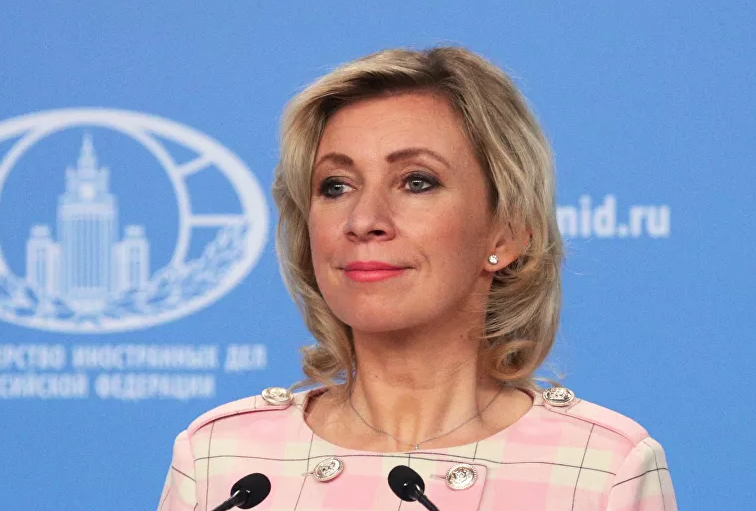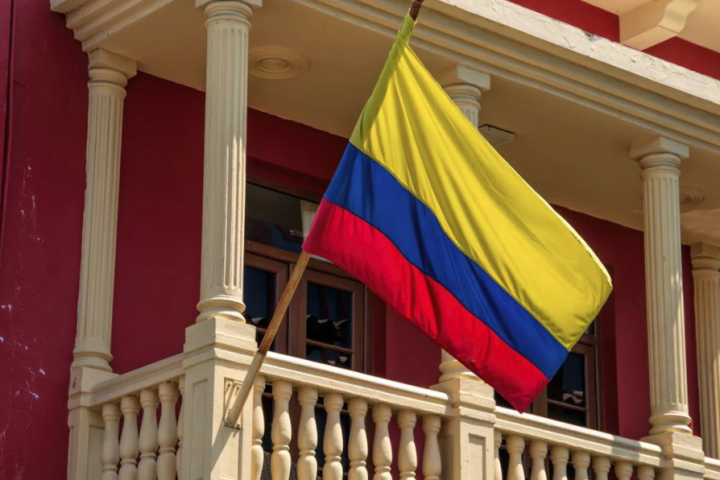In fact, the rules of engagement between the actors, established over the years, made the attacks and their response predictable. Nevertheless, Israel’s political elites have repeatedly expressed their “readiness to eliminate the enemy in the North”.
On the other hand, Hezbollah’s attacks on Israel and the eviction of Jewish settlers from their homes is one of the biggest problems for Tel Aviv. The recent increase in the quantity and quality of Hezbollah attacks seems to have galvanized the Israeli army.
According to Israel’s The Jerusalem Post, Major General Uri Gordin, commander of the Israeli Army’s Northern Command, met with local defense groups of settlers in the north to “raise morale and coordinate further activities against Hezbollah and, if necessary, Syria.”
- UK imposes sanctions on prison officials where Russian dissident Navalny died
- France condemns Israel’s announcement of illegal settlements in Gaza
The newspaper said Gordin held a series of meetings with different groups spread across the northern border, both to listen to the latest security concerns and to personally accelerate the defense processes to strengthen the groups.
The Jerusalem Post quoted the Israeli commander as saying at the meeting:
“If we have to go on the offensive in the North, it will be with terrible force. The defense of your towns, both evacuated and unevacuated, by your local defense groups is part of our broader defense concept. You are not just residents; you are an integral part of the defense line in the North and of our larger defense apparatus.”
On the other hand, several Hezbollah commanders have been killed so far in Israeli attacks in Lebanon.
Speaking recently, Hezbollah leader Hassan Nasrallah said that the blood of civilians, including women and children, killed in Lebanon will be repaid in blood, not by striking positions.
Nasrallah argued that Hezbollah has the military capabilities and capacity to confront Israel and said, “The Resistance (Hezbollah) has the missile power to cover the distance from Kiryat Shmona to Eliat.”
Statements are being made from both sides to fuel the conflict. However, this may not fully reflect the situation on the ground. Experts say that neither side has a strategy to expand the conflict in Gaza to wider areas.
While the United States frequently warns the Israeli government about this, Iran does not favor a possible war involving Hezbollah. In fact, there are many who believe that the time for Hezbollah to get involved in the war in Gaza has passed.
But the fact remains that there is a war of attrition between the actors. Hezbollah’s aim seems to be to prevent Tel Aviv from concentrating all its efforts on Gaza.
In Tel Aviv, it is reported that there is continued pressure from some members of the government to carry out pre-emptive and heavy attacks against Hezbollah.
On the other hand, the following possibility should not be ruled out. If Israel attacks Rafah and comes close to finalizing its attempt to destroy Hamas in Gaza, this could be an important threshold for Hezbollah. Hezbollah knows that after Hamas, it will be the next actor that Israel will focus on.
Israel-Hezbollah Conflict from past to present
It was the relocation of the Palestine Liberation Organization (PLO) to Lebanon that pitted Israel and Hezbollah against each other and sparked a decades-long conflict.
Following the 1967 Arab-Israeli War and the Jordanian coup attempt against King Hussein in 1970, increased pressure on the Palestine Liberation Organization led many Palestinian refugees, including Yasser Arafat, to flee to Lebanon.
April 1973: Israeli elite commandos dressed as women and led by future Israeli Prime Minister Ehud Barak killed three PLO leaders in Beirut.
1975: Civil war broke out in Lebanon, pitting Palestinians and pro-Palestinian Lebanese militias against Lebanon’s Christian militias. The war would last for nearly 15 years, officially ending in 1990.
1976: In the early months of the civil war, Syria sent military peacekeepers to help end the fighting. The troops would remain there for nearly 30 years until April 2005.
March 1978: Using a PLO attack on a bus in northern Israel as a pretext, Israel launched a military operation in Lebanon. However, Israel withdrew after the UN Security Council adopted a resolution on the immediate withdrawal of Israeli forces. Under the leadership of Major Saad Haddad, an Israeli ally, a 12-mile wide “security zone” was established to protect Israeli territory from cross-border attacks.
July 17, 1981: Israeli forces bombed the PLO headquarters in West Beirut, killing more than 300 civilians. The attack is followed by a US-brokered ceasefire between Israel, the PLO and Syria in Lebanon.
1982: The ceasefire lasted until June 6, 1982, when Israel invaded Lebanon with some 60,000 troops in an attempt to destroy the PLO following the assassination attempt on the British ambassador. Arafat and the PLO fled Lebanon in August and settled in Tunisia.
October 23, 1983: A Hezbollah suicide bomber blew up the headquarters of the US Navy and French forces in Beirut, killing 298 people, including 241 US Marines. US troops withdrew from Lebanon a few months later.
1990: Lebanon’s 15-year civil war officially ended.
May 2000: Israeli troops withdrew from South Lebanon and the United Nations established the “Blue Line” as the border between the two countries.
2006: A 34-day war between Hezbollah and Israel began.
What happens if Hezbollah gets involved in the conflict?
We have tried to answer this question by looking at the war between Israel and Hezbollah 18 years ago and Hezbollah’s transforming and growing capacity.
In fact, it is very difficult to predict the consequences of such a possibility. However, past conflicts and wars can give an idea for today.
We go back a long way, to 2006. The Israel-Hezbollah war that lasted 34 days in a hot July. It was an important war in which Hezbollah surprised the world against Israel, although the question of who won is still being asked.
The process leading to war…
The Taif Agreement, which ended Lebanon’s 15-year civil war, increased the pressure on Hezbollah, one of the most effective armed forces in the country.
In fact, the embargoes imposed on the country and the dichotomies in the security field were to Lebanon’s detriment in every field, from economy to politics. However, Hezbollah refused to lay down its arms.
Despite Israel’s announcement that it was withdrawing from southern Lebanon, which it has occupied since 1982, it has not withdrawn from some areas along the border, which was Hezbollah’s response to calls from both inside and outside the country to “lay down arms”.
The “July War” begins…
In July 2006, Hezbollah launched an attack on Israel to ease the pressure on it. Hezbollah militants crossed the border, killed 3 Israeli soldiers and took 2 hostages. When an Israeli tank was destroyed and 5 more soldiers were killed during Israel’s counter-attack, events escalated and the so-called “July War” began.
As a result of Israeli attacks, much of Lebanon’s infrastructure, including the capital Beirut, has collapsed. Some 1,000 Lebanese citizens were killed in the fighting, while around 160 Israelis were killed. Between 1 and 2/3 of Lebanese casualties were civilians, while 43 Israeli civilians were killed by Hezbollah missiles.
After 34 days of fighting, the revelation that Hezbollah was capable of striking several Israeli cities has severely damaged the myth of Israel’s “invincibility” prevalent in the region.
Moreover, although Hezbollah increased its popularity both in Lebanon and in the Arab region after 2006, it faced serious opposition within the country on the grounds that it was “dragging Lebanon into disaster once again”.
How has Hezbollah’s military capacity changed?
Hezbollah is notable for its missile power, either acquired from Iran or developed in Lebanon. Israeli media and security sources often highlight this power of the organization and claim that it poses a threat to them.
As a result of Israeli attacks, much of Lebanon’s infrastructure, including the capital Beirut, has collapsed. Some 1,000 Lebanese citizens were killed in the fighting, while around 160 Israelis were killed. Between 1 and 2/3 of Lebanese casualties were civilians, while 43 Israeli civilians were killed by Hezbollah missiles.
After 34 days of fighting, the revelation that Hezbollah was capable of striking several Israeli cities has severely damaged the myth of Israel’s “invincibility” prevalent in the region.
Moreover, although Hezbollah increased its popularity both in Lebanon and in the Arab region after 2006, it faced serious opposition within the country on the grounds that it was “dragging Lebanon into disaster once again”.
How has Hezbollah’s military capacity changed?
Hezbollah is notable for its missile power, either acquired from Iran or developed in Lebanon. Israeli media and security sources often highlight this power of the organization and claim that it poses a threat to them.





